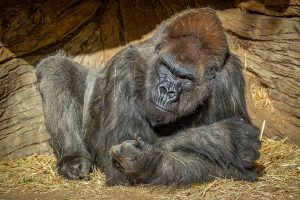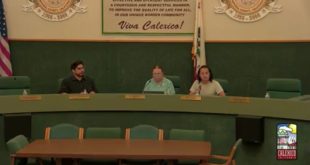 -Editorial
-Editorial
Members of the Gorilla Troop at the San Diego Zoo Safari Park have tested positive for SARS-CoV-2, the virus that causes COVID-19. On Wednesday, January 6, two of the gorillas began coughing. Given current circumstances, San Diego Zoo Global initiated the process of testing fecal samples from the gorillas for SARS-CoV-2 through the California Animal Health and Food Safety Laboratory System (CA HFS). On January 8, the preliminary tests detected the presence of the virus in the gorilla troop. The U.S Department of Agriculture (USDA) National Veterinary Services Laboratories (NVSL) confirmed the positive results on Monday, January 11.
The test results confirm the presence of SARS-CoV-2 in some of the gorillas and do not definitively rule out the presence of the virus in other members of the troop.
“Aside from some congestion and coughing, the gorillas are doing well,” said Lisa Peterson, executive director, San Diego Zoo Safari Park. “The troop remains quarantined together and are eating and drinking. We are hopeful for a full recovery.”
It is suspected the gorillas acquired the infection from an asymptomatic staff member, despite following all recommended precautions including COVID-19 safety protocols from the Centers for Disease Control and Prevention (CDC) and San Diego County Public Health as well as wearing PPE when near the gorillas. Research studies have verified that some non-human primates are susceptible to infection with SARS-CoV-2, but this is the first known instance of natural transmission to great apes and it is unknown if they will have any serious reaction.
“For almost one year our team members have been working tirelessly, with the utmost determination to protect each other and the wildlife in our care from this highly contagious virus,” said Peterson.
“The safety of our staff and the wildlife in our care remains our number one priority.”
San Diego Zoo Global’s wildlife care professionals and conservationists have cared for family groups of gorillas at the San Diego Zoo and San Diego Zoo Safari Park for decades and contribute their expertise in efforts to protect this species in the Ebo Forest of Cameroon. San Diego Zoo Global has strict biosecurity measures in place to protect all of the wildlife in its care and has successfully protected its wildlife populations from emerging disease threats in the community such as Newcastle’s Disease and West Nile Virus. In March 2020, as the community responded to the pandemic, San Diego Zoo Global scientists worked with disease experts to share their expertise in biosecurity with USDA, AZA, and other organizations, establishing industry practices for protecting wildlife worldwide.
The San Diego Zoo Safari Park, like many public facilities, has been closed to the public since December 6. The primate habitat at the San Diego Zoo Safari Park allows the great apes to be at a safe distance from all guests at all times and pose no public health risk.





